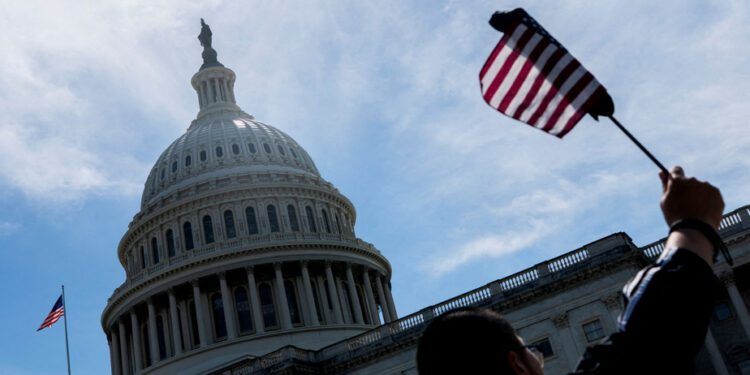(Washington) The entry prohibition in the United States for nationals of 12 countries laid down last week by Donald Trump came into force at 0:01 on the night of Sunday to Monday, according to the text of the presidential decree.
This decision, made in order to “protect the United States in the face of foreign terrorists and other national security threats”, according to the presidential proclamation, concerns nationals of Afghanistan, Burma, Chad, Congo-Brazzaville, Equatorial Guinea, Eritrea, Haiti, Iran, Libya, Somalia and Yemen.
The American executive, which carries out a very restrictive anti-immigration policy, motivates the registration of the countries concerned on this list by the absence of effective administrations to ensure control of travelers and the trend of nationals of some to stay in the United States after the expiration of their visas.
The nationals of seven other countries are struck by restrictions in the deliverance of visas: Burundi, Cuba, Laos, Sierra Leone, Togo, Turkmenistan and Venezuela.
The American president compared this decision announced last Wednesday on the “effective restrictions” which he had imposed on nationals of seven mainly Muslim countries, qualified by his detractors as “Muslim Ban” at the start of his previous mandate, in 2017.
Four countries are also on the two lists: Iran, Libya, Sudan and Yemen.
“As president, I must act to protect national security and national interest in the United States and their population,” said Donald Trump in the decision text, who says he wants to “protect the United States in the face of foreign terrorists”.
“Ratist and cruel”
The real estate tycoon notably cited the attack on 1er June in Colorado by an Egyptian whose visa had expired to illustrate “the extreme dangers represented by the entry of foreign nationals who have not been properly controlled”.
This attack on participants in a weekly walk in support of Israeli hostages in Gaza was 12 injured.
“We will not allow what happened in Europe to happen in America,” added Donald Trump in reference to the attacks, sometimes jihadists, perpetrated by foreign nationals.
These prohibitions were welcomed with concern and perplexity by several targeted countries.
The UN High Commissioner for Human Rights, Volker Türk, expressed his “concerns with regard to international law” due to the “very broad and general scope” of this ban.
International amnesty denounced a “discriminatory, racist and absolutely cruel” decree.
The African Union (AU) said it was “concerned about the potential negative impact of such measures”, including on “diplomatic relations” with the countries concerned.
One of them, Chad has announced suspend the granting of visas to American citizens as a retaliatory measure.
“I know the pain that infiction of Trump’s cruel and xenophobic travel infiction infiction, because my family was hit hard,” the Iranian-American Elected Yassamine Ansari, a member of the Congress, wrote on Sunday. “We will fight this ban with everything we have. »»
Exceptions are nevertheless provided for holders of certain visas, for diplomats and for people whose trip to the United States “serves the national interest”.
Footballers participating in the 2026 World Cup, which will take place in the United States, Mexico and Canada, as well as the athletes of the Los Angeles Olympic Games (2028) will not be affected by the restrictions.
The prohibition enacted in January 2017 had caused significant demonstrations in several major American airports.



